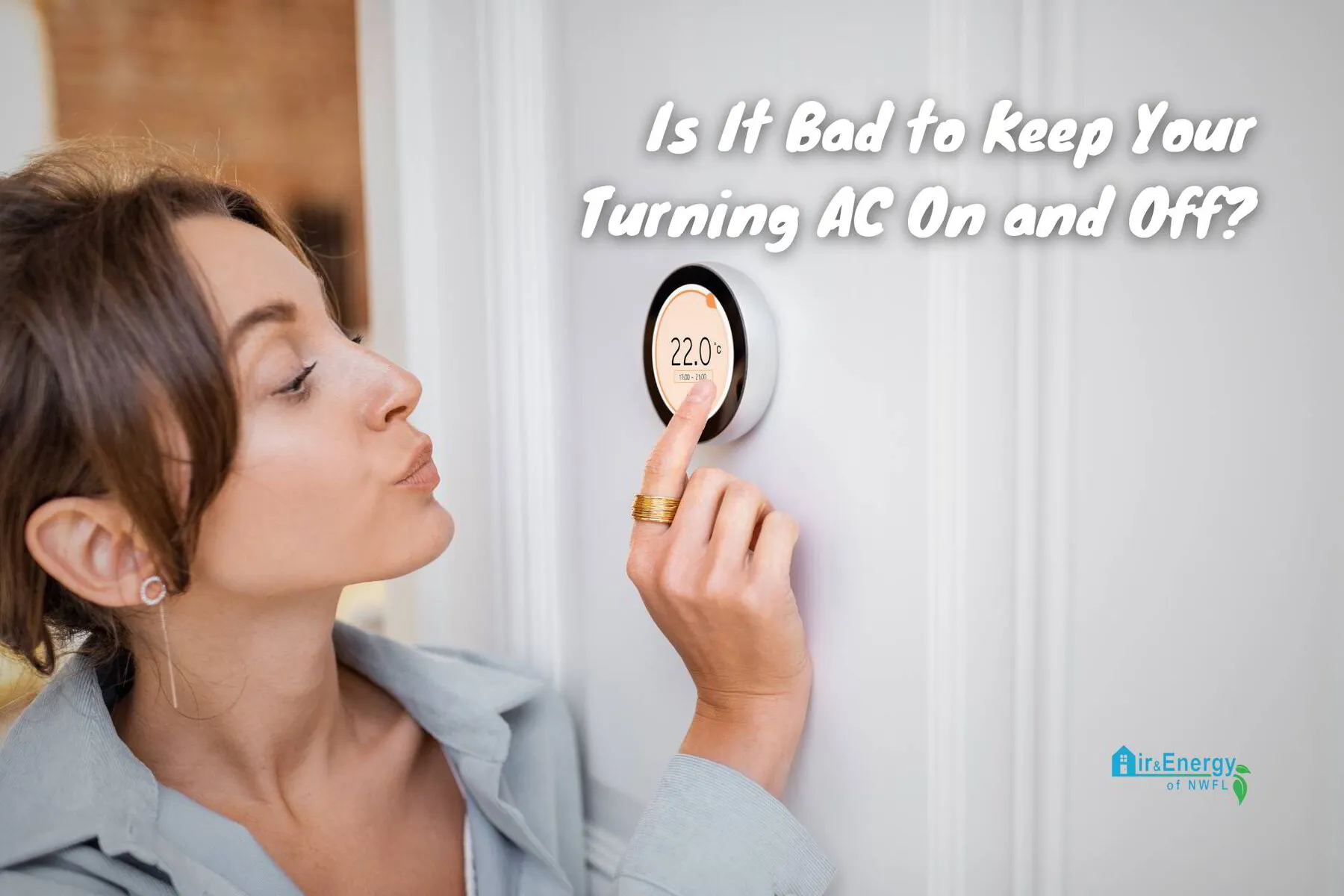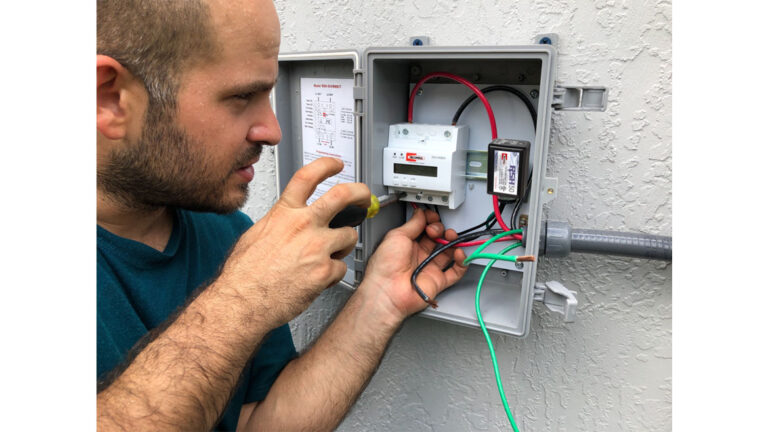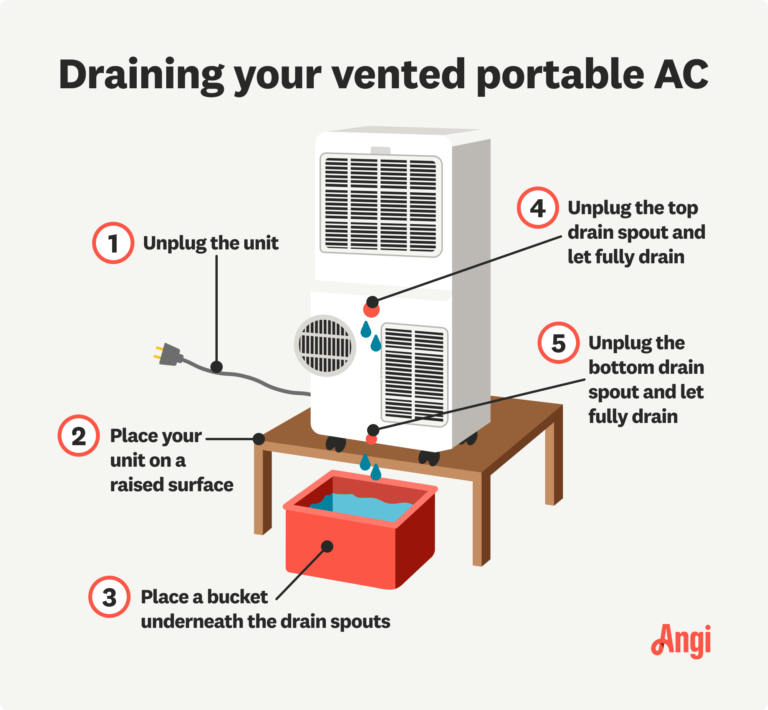Is It Bad To Keep Turning AC On And Off? Discover the Truth
Constantly turning your AC on and off can cause wear and tear. It may also reduce its efficiency over time.
Air conditioners are essential for maintaining a comfortable indoor temperature, especially during hot months. Frequent cycling, or turning the AC on and off repeatedly, can negatively impact the unit. The system works harder to reach the desired temperature, leading to increased energy consumption and potential mechanical issues.
This practice not only shortens the lifespan of the AC but also results in higher utility bills. Maintaining a steady temperature setting helps in optimizing performance and energy efficiency. Understanding these impacts can help you make better decisions for your AC unit’s longevity and effectiveness.

Credit: longtotalcomfort.com
AC Basics
Understanding the basics of air conditioning (AC) can help you use it better. Knowing how your AC works and the types available is crucial.
How AC Units Work
AC units cool your home by removing heat and humidity. They use a refrigerant to absorb heat from indoor air. The heat is then released outside. This cycle continues until the desired indoor temperature is reached.
The main parts of an AC unit include:
- Compressor: Compresses the refrigerant and raises its temperature.
- Condenser Coil: Releases the heat outside.
- Evaporator Coil: Absorbs the heat from indoor air.
- Blower Fan: Circulates the cool air inside your home.
Common Types Of AC Units
There are several types of AC units. Each has its own features and benefits. Here are the most common ones:
| Type | Description |
|---|---|
| Central AC | Used for cooling large homes. It uses ducts to distribute cool air. |
| Window AC | Installed in a window. Ideal for cooling single rooms. |
| Portable AC | Can be moved from room to room. Does not require permanent installation. |
| Split AC | Has two units: one inside and one outside. Good for cooling specific areas. |
Energy Consumption
Turning your air conditioner on and off can impact energy consumption. Let’s explore how it affects your energy bills and efficiency.
Impact On Energy Bills
Frequent AC cycling can increase your energy bills. Each time you turn it on, the system uses a lot of energy to start up. This can lead to higher costs over time. Below is a table showing the comparison:
| Scenario | Energy Consumption | Cost |
|---|---|---|
| Frequent On/Off | High | Expensive |
| Steady Operation | Moderate | Cost-Efficient |
Efficiency Considerations
AC units are most efficient when running at a consistent speed. Turning your AC on and off frequently can reduce its efficiency. This causes the system to work harder and wear out faster.
- Consistent operation maintains efficiency.
- Frequent cycling strains the system.
- Reduced lifespan of the unit.
Wear And Tear
Your air conditioner (AC) is a vital home appliance. Frequent turning on and off can lead to more wear and tear. This can result in increased maintenance and repair costs. Understanding the effects of frequent switching is crucial for the longevity of your AC unit.
Component Stress
Frequent switching strains the internal components of the AC.
- Compressor: The compressor is the heart of the AC. It works harder with frequent starts and stops. This can cause it to overheat and eventually fail.
- Fan Motor: The fan motor also experiences stress. Each time the AC starts, the fan motor needs to kick in. This repeated action can lead to wear and tear.
- Electrical Components: Frequent switching can wear out electrical components. This includes relays, capacitors, and switches.
All these factors contribute to the overall stress on your AC. This can lead to more frequent repairs and higher costs.
Longevity Of Ac Units
Frequent on and off cycles can reduce the lifespan of your AC unit. Here are some key points to consider:
- Reduced Lifespan: Frequent switching can reduce the AC’s overall lifespan. A unit that could last 15 years might only last 10.
- Increased Wear: Constant starting and stopping increase wear. This can lead to more frequent breakdowns.
- Higher Costs: More breakdowns mean higher repair and replacement costs. This can add up over time.
By understanding these factors, you can take steps to reduce wear and tear. This will help extend the life of your AC unit.
Temperature Control
Managing your home’s temperature is important for comfort and energy savings. Is it bad to keep turning your AC on and off? Let’s dive into temperature control to understand better.
Maintaining Comfort Levels
Keeping the indoor temperature consistent helps maintain comfort levels. Frequent changes can make it hard to feel comfortable. The AC has to work harder, consuming more energy. This can result in higher electricity bills. A steady temperature is key to a cozy home.
Consider setting your thermostat to an optimal temperature. Most people find 72°F (22°C) comfortable. This helps avoid the need to turn the AC on and off frequently.
Temperature Fluctuations
Frequent temperature changes can cause temperature fluctuations. These can be uncomfortable and unhealthy. Rapid changes can affect your body’s ability to adapt. It can also be bad for pets and plants at home.
Temperature fluctuations can also damage household items. Electronics, wooden furniture, and musical instruments prefer stable conditions. Keeping a consistent temperature can prolong their lifespan.
Below is a simple table showing the effects of temperature fluctuations:
| Item | Effect of Fluctuations |
|---|---|
| Electronics | May overheat or malfunction |
| Wooden Furniture | Can warp or crack |
| Musical Instruments | May go out of tune |
Maintaining a stable indoor temperature is beneficial. It ensures comfort and protects your belongings.
Cost Implications
Keeping your air conditioner in good condition is crucial. Constantly turning it on and off can lead to higher costs. Let’s explore the cost implications of this practice.
Repair Costs
Frequent cycling of your AC unit can cause wear and tear. This results in more frequent repairs. Components like the compressor and fan motor may fail sooner. Repairing these parts can be expensive.
Here are some common repair costs:
- Compressor Repair: $600 to $1,200
- Fan Motor Repair: $300 to $600
- Thermostat Replacement: $150 to $300
Replacement Costs
If repairs are needed often, you might need a new AC unit. An AC unit has a lifespan of about 10-15 years. Frequent cycling shortens this lifespan. Buying a new unit is costly.
Let’s look at the replacement costs:
| Unit Type | Cost |
|---|---|
| Central Air Conditioner | $3,000 to $7,000 |
| Window Air Conditioner | $150 to $750 |
| Portable Air Conditioner | $250 to $600 |
Replacing an AC unit is a significant investment. Avoid frequent cycling to extend your unit’s lifespan.
Environmental Impact
Air conditioners offer comfort during hot days, but their use has environmental effects. Constantly turning the AC on and off can impact the environment in several ways.
Carbon Footprint
Turning the AC on and off frequently can increase your carbon footprint. Each time the AC starts, it consumes more energy to reach the desired temperature. This spike in energy usage results in higher emissions of greenhouse gases.
Greenhouse gases contribute to global warming and climate change. Reducing the frequency of turning the AC on and off can help lessen these emissions.
Sustainability
Frequent switching of the AC can affect the sustainability of energy resources. More energy consumption means more demand for power plants. This can lead to more burning of fossil fuels, which are not sustainable.
A steady use of the AC, rather than frequent switching, can support better energy management. This helps in conserving energy resources for future generations.
| Frequent Switching | Steady Use |
|---|---|
| Higher energy spikes | Consistent energy use |
| Increased carbon emissions | Lower carbon emissions |
| Unsustainable energy demand | Better energy conservation |
In summary, keeping the AC on and off affects both carbon footprint and sustainability. Making mindful decisions about AC use can benefit the environment.
Myths Vs. Facts
Many people believe that turning the air conditioner on and off harms it. This section will explore common misconceptions and present scientific findings.
Common Misconceptions
Several myths surround the practice of frequently turning the AC on and off. Let’s look at some common misconceptions:
- Myth 1: Turning the AC off saves energy.
- Myth 2: Frequent switching damages the unit.
- Myth 3: AC units work harder if turned off.
These myths often lead to confusion. Understanding the facts can help make better decisions.
Scientific Findings
Research provides clear answers about turning the AC on and off. Here are the findings:
| Myth | Fact |
|---|---|
| Turning the AC off saves energy. | Fact: Turning it off for short periods doesn’t save energy. |
| Frequent switching damages the unit. | Fact: Modern AC units handle frequent switching well. |
| AC units work harder if turned off. | Fact: The unit does not work harder when restarted. |
Understanding these facts can help maintain your AC better. It can also save energy and reduce costs.

Credit: airandenergynwfl.com
Best Practices
Turning your AC on and off frequently can affect its performance. This can also impact your energy bills. Follow these best practices to use your AC efficiently and maintain its health.
Optimal Usage Tips
- Set a consistent temperature: Keep your AC at a steady temperature. This helps avoid constant switching and saves energy.
- Use a programmable thermostat: Set schedules for your AC. This ensures it runs only when needed.
- Close doors and windows: Keep the cool air inside. This reduces the load on your AC.
- Use fans: Ceiling fans can help circulate the air. This allows you to set the AC at a higher temperature.
Maintenance Advice
- Regularly clean filters: Dirty filters make your AC work harder. Clean or replace them every month.
- Check for leaks: Ensure there are no leaks in the ducts. This helps maintain efficiency.
- Schedule annual maintenance: Have a professional inspect your AC once a year. This keeps it running smoothly.
- Clear the area around the unit: Remove debris and ensure good airflow. This prevents strain on the system.

Credit: www.homecomfortusa.com
Frequently Asked Questions
Is It Bad To Constantly Turn On And Off Ac?
Yes, frequently turning the AC on and off can damage the unit. It increases wear and tear and reduces efficiency.
Does Switching Ac On And Off Damage It?
Frequently switching your AC on and off can damage it. It causes more wear and tear on the components. It’s better to maintain a consistent temperature.
How Many Times Should Ac Turn On And Off?
An AC should cycle about 2-3 times per hour. Each cycle should last 15-20 minutes. Proper cycling ensures efficiency.
Conclusion
Turning your AC on and off frequently is not ideal. It can lead to higher energy bills and wear out your unit faster. For efficiency, set a consistent temperature and use a programmable thermostat. Proper maintenance can also extend the lifespan of your AC, ensuring comfort and savings in the long run.







